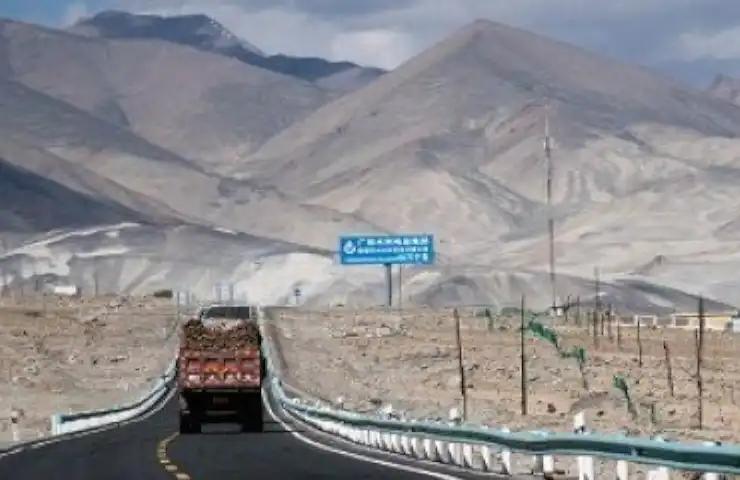China is eyeing multiple opportunities in Afghanistan after a complete US pullout. It is not just the unexploited mineral resources but also the China Pakistan Economic Corridor (CPEC) which it seeks to expand into Afghanistan.
With the help of iron-brother Pakistan, China has been inviting South Asian nations including Afghanistan to join the CPEC–a part of its mega infrastructure project–the Belt and Road Initiative (BRI).
Amsterdam-based organisation, European Foundation for South Asian Studies (EFSAS) has said that though China's huge investment projects promise to create opportunities for South Asia, these also present environmental risks, besides economic, legal and sovereignty issues.
In short, EFSAS has warned that China's projects in South Asia are environmentally unsustainable and could push participating countries into bigger problems.
The South Asian region with its large population is highly vulnerable to climate change impacts.
According to EFSAS, South Asia is following a development trajectory which causes pollution through growing industrialisation–a key environmental characteristic of South Asia. It highlights a 2019 report by The Energy and Resources Institute, which says that pollution has increased owing to rapid industrialisation. It points out that air pollution has become severe with urban areas witnessing extreme air pollution–making South Asian air one of the worst in the world.
In Pakistan, the CPEC bears several environmental hazards and climate change vulnerabilities along with legal conflicts in terms of international law due to the disputed territory of Gilgit Baltistan.
The CPEC is also leading to large-scale deforestation for the purposes of constructing road networks. EFSAS says that the CPEC roads like the Karakorum Highway are likely to carry 7,000 trucks per day, which would release 36.5 million tonnes of CO2 creating more air pollution.
"Besides the destruction of habitat and biodiversity, resource scarcity and subsequent competition for natural resources and land could also emerge as an issue for political and potentially armed conflict in the future", says EFSAS.
It says that the BRI is driven by the logic that industrial growth will bring about development. For China, the construction of physical infrastructure, including transport and energy networks, has played a foundational role in its rapid economic development. Now, Beijing is now replicating the same infrastructure-driven growth model in South Asia without building in renewable forms of energy, says EFSAS.
The report says that though "China seeks to consolidate and expand its global economic and political role", the BRI projects in South Asia will provide short-term economic benefits to participating countries bringing along long-term negative ecological and economic impacts.




















